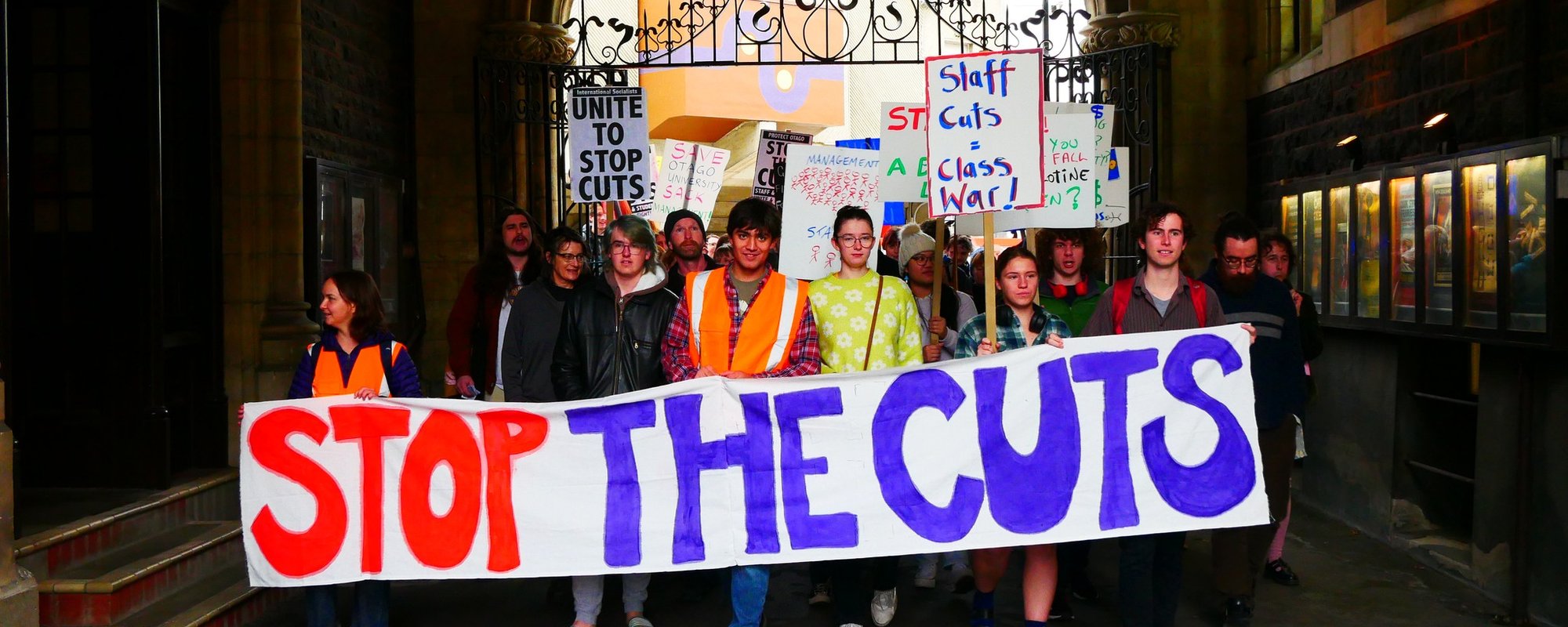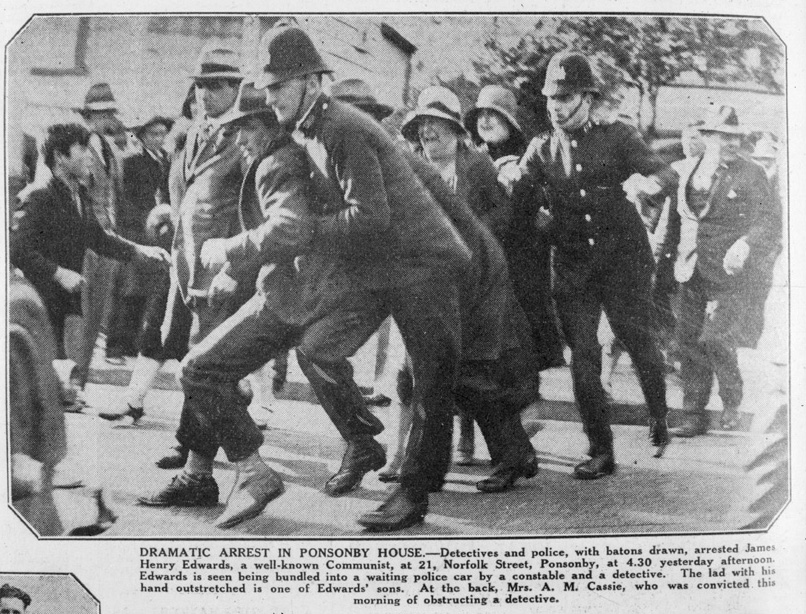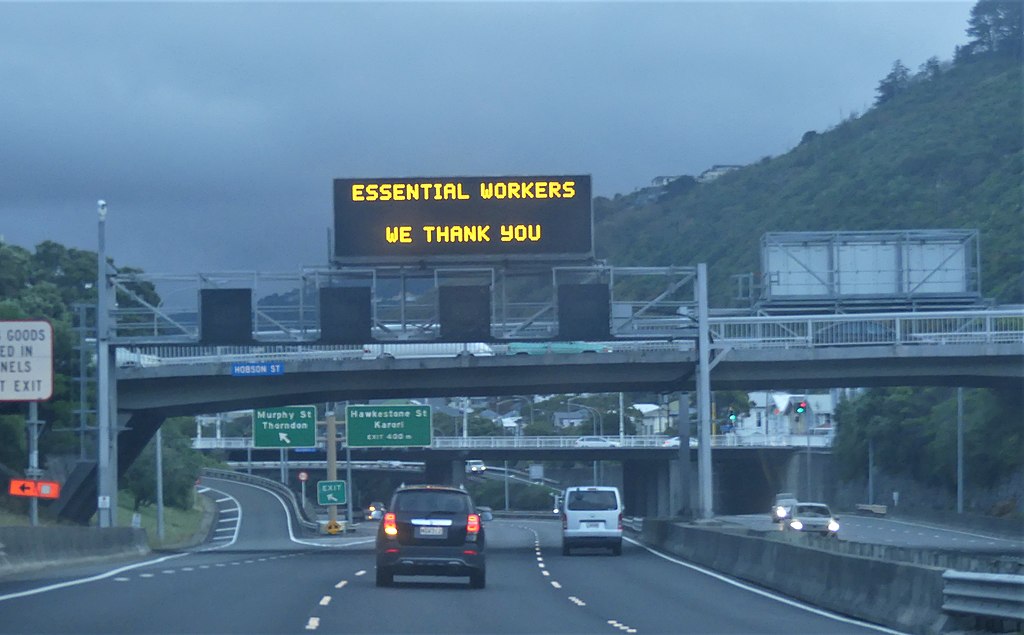So much has happened in these past years – the pandemic, the massacre in Christchurch, the disaster at Whakaari White Island, justice struggles at Ihumātao, the Climate Strikes, Black Lives Matter’s enormous mobilisations globally, war in Ukraine, resistance and rebellion in Iran, suppression in Hong Kong – it can be difficult to take stock of the present as history. So much hasn’t happened, here, too, that so desperately needs to: real action on climate change; genuine solidarity with unemployed workers, through acting on the Welfare Expert Advisory Group’s report, for starters; funding of the health system on a scale that could meet our current needs. The mood is in many places exhausted, bitter, and, through the pandemic, disorientated and sometimes bewildered. Ardern’s resignation comes amidst all of this exhaustion and this bitterness. How to take stock?
Socialism, for our tradition, is something only imaginable as the self-activity of working people, self-emancipation, collective, democratic liberatory control by workers and the oppressed. No one else can do it on your behalf, and no one can give it to you through some clever trick. That vision’s daunting, though, and seems as long a way off as ever and, facing the inadequacy of our forces against the strength of the powerful, two kinds of wish fulfilment can be tempting when we think about electoral politics.
One, a kind of optimistic wish fulfilment, projects our desires onto Labour and its leaders. If only they had the courage of their convictions they might find success. If only they had the courage to use their majority to make real changes there could be a durable legacy. Perhaps now, surely… Ardern deserves, though, to be taken at her word. She, Robertson, Little, Hipkins, Davis: none of the senior leaders in Labour have ever expressed any commitment to the kind of left-wing, class-struggle transformational reformism so many of their supporters hope for. Labour governments, here and abroad, have histories from over a hundred years now of disappointing their core voter base by ruling in the interests of capitalism as they rely on union and worker support to be elected. The sense of directionlessness that’s plagued Labour these past months is not an aberration but, in many ways, a return to normal after the unusual times of lockdown and (sometimes inspirational) crisis management.
Ardern’s resignation and Hipkins’ ascension, then, shouldn’t be seen as too much of a change. They share deep political continuity. The discipline and unity of Labour’s caucus over the weekend reflects that.
Another kind of wish fulfilment is the pessimistic mirror-image of this projection. This is when socialists, because we know we need to get beyond Labour to real mass working-class politics, announce that there is no longer any genuine differences between the major parties, or that the government has not delivered reforms for working people, or that the whole thing is a side-show.
The facts don’t bear this out. Under Ardern and Labour abortion has come out of the Crimes Act; pay equity legislation came through for support workers; Fair Pay Agreement legislation makes some more space for unions; a new Māori Health Authority has been established; changes to births, deaths and marriages registration acknowledges trans people better; minimum wage increases have been real and substantially better than National’s; Matariki has been made a public holiday and, towering over all of this, the Elimination Strategy for COVID from 2020 to 2021 saved thousands of lives. All represent reform. None of this was enough, naturally; all of it our movements and unions have had to struggle over to improve and win more; all of it is in contest. But the last five years have also given our side greater confidence. Look at the increase in strike numbers, and the increases in union membership. Look at the wins, however tentative for now, in the private sector, where our unions have been weakest. It’s no wonder that the ruling class are so keen to see National return to power, and are supporting them with so much money.
All of that’s in play when people respond to Ardern’s resignation, and all of that’s in mind when people express sadness or dismay. If we are frustrated and angry at the limitations of this government’s vision and programme, that’s a different anger and frustration to the one that drives the hostility to Ardern that has real social reach at the moment. Those celebrating her resignation – including in the most vilely misogynistic manner – are celebrating what they see as a blow to the best of her legacy, not her worst. Left-wing instincts now should trust solidarity over what seems like a critical attitude that is in fact demoralising and demobilising.
Misogyny as the fuel for that frustration and anger is an ugly current running through the rightist swirl of anti-vaccine, conspiracist and racist dreaming gaining confidence just now. Ardern always faced the most appalling sexism from the beginning. I used to wince during lockdown listening after the 1pm press conferences when Ardern, so obviously a master of detail and evidently a highly intelligent, highly skilled politician operating unflappably in the most stressful environment, was patronised and goaded by male journalists clearly her intellectual inferiors. Duncan Garner and Mike Hosking, in the most childish manner, would try and get ‘a rise’ from the Prime Minister with the most inane and self-important lines of question, Garner once asking if she would get advice from John Key through the pandemic. Thank goodness she didn’t: imagine the consequences for our health and lives.
As the anti-vaccine movement grew, though, and linking with far-right forces globally and with the sexism and racism of the incoherences in so-called groundswells and the howling against Three Waters, the ‘mainstream’ disrespect for Ardern found echoes in a more violent misogyny. Tina Ngata, Alison Mau, Michelle Duff and Anusha Bradley have all written important accounts of the torrent of threats, denigration, abuse and menace directed at Ardern. I recognised much of this in the signs I saw carried during anti-government protests in August.
Misogyny is one of the energising hatreds of the far right globally. It’s well-documented that female politicians experience worse abuse than male: what’s building now, too, is something explosive, uncertain, chaotic. It’s expressing itself globally in transphobia and hostility to reproductive rights, and is a way of making it harder to workers and the oppressed to organise, to feel confident building democratically, and of holding our own.
It matters, then, thinking on these last years, who has recognised and acknowledged the vitriol and misogyny Ardern (and many others) have suffered, and those who have tried to minimise, or normalise, this abuse. One of the ways we have had more confidence organising these past years has been in struggles for recognition, from abortion rights to trans resistance. Those are class struggles, among other things, and any so-called friends of workers’ struggle who encourage us to distance class demands from so-called ‘woke’ politics show, at best, an ignorance of class as it really works and a shocking indifference to bigotry as it is currently organising and, at worst, a collaboration with its cadres.
What next? Stuff’s Andrea Vance, within hours of Ardern’s statement, announced that she and Grant Robertson had just conceded the election to National. This is wishful thinking rather than analysis. Ardern, having positioned herself during the pandemic as acting almost beyond politics, may have found less room to move in an election forced onto bitty, disappointed, limited terrain. ‘Kindness’ echoes dully in the days of high inflation and cost of living crises. In 1993 Paul Keating in Australia was, when deeply unpopular, leading a seemingly exhausted government and facing an openly right-wing pro-business opposition, declared an inevitable loser by almost all commentators. He won through a campaign relentless scrappiness against his conservative opponents’ weaknesses and top-end-of-town disconnection: “mate I want to do you slowly”. Hipkins, with none of Ardern’s charisma or grandeur, seems, from his first statement as Labour Leader, to be positioning himself for a similar fight. He could, given Christopher Luxon’s corporate blethers and charmless entitlement, pull it off.
For our side, though, the same tasks stay vital. Pressure always comes on, and intensifies the longer Labour is in government, to trim demands, temper expectations, hold things back, keep silent, drop our more difficult solidarities, in case disunity produces a National win. This would be the worst thing we could do. Bad in immediate terms, because the more demoralised and disillusioned workers become the greater the chances follow of National victory. So strikes to win and defend real wage gains, campaigns to push further for climate action, demands for Māori land rights and more, and every other struggle for solidarity stay essential. Dropping them, in a longer view, would be worse yet because it’s through these struggles, and in the strength and lessons we take from them, that forces can be forged to build a real, socialist alternative to Labour now and the right tomorrow. That task stays as urgent as ever.








